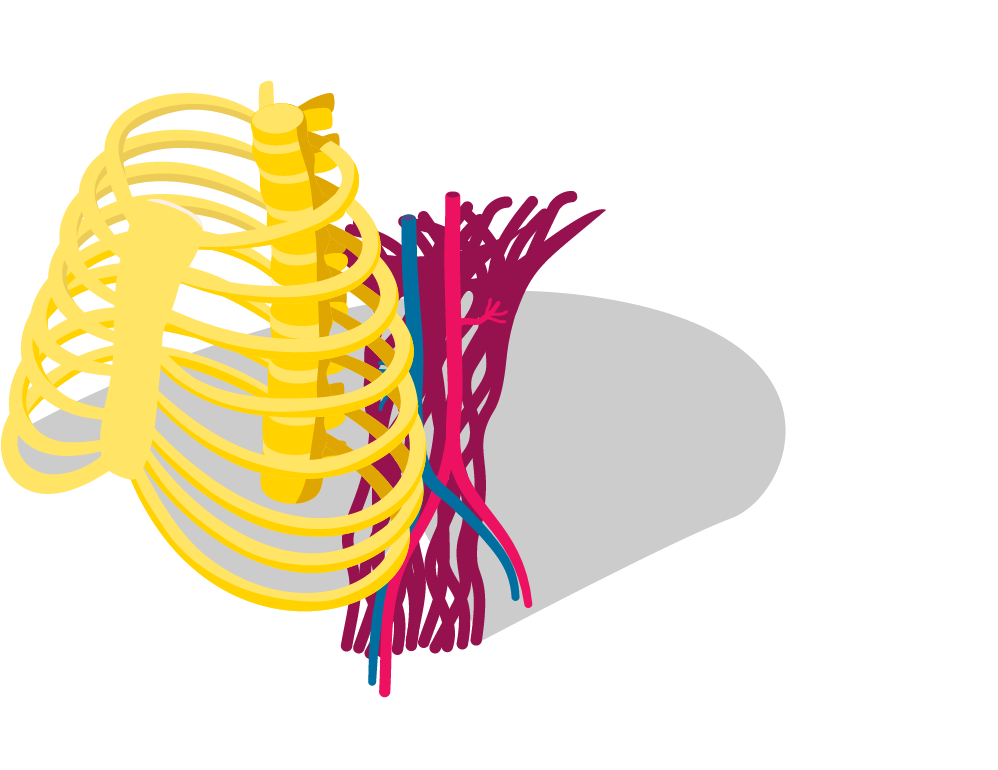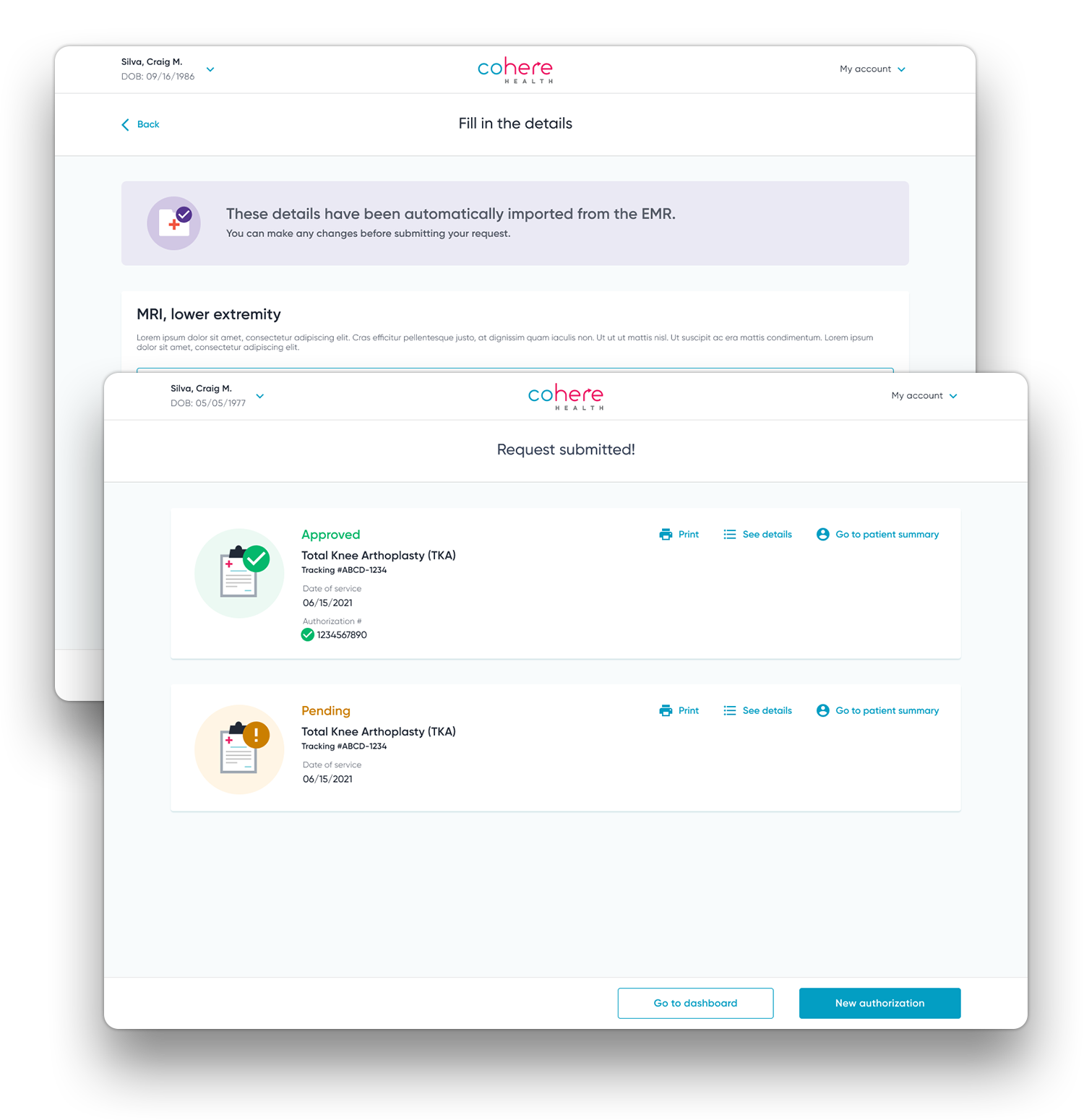Musculoskeletal
Reduce unwarranted care variation, with fewer denials vs. your current musculoskeletal management program
Cohere’s fully-delegated delivery of our intelligent prior authorization solution for musculoskeletal care offers health plans an end-to-end solution to drive additional cost savings and better care outcomes while reducing provider abrasion

The result?
Download our case study or view our one-page infographic to learn more about how we are driving these savings and more at a leading national health plan.

Powering our fully delegated solution for musculoskeletal services is Cohere Unify™, our intelligent UM prior authorization platform.
Cohere’s platform is the only UM technology to enable providers to see the full context of the patient’s care path from within their existing authorization workflows, while surfacing dynamic, evidence-based suggestions to influence decisions towards high value care before the care is rendered. This unique approach allows providers to orient prior authorizations to the whole episode of care, improving patient access and experiences, while reducing friction.

Download our white paper to learn more about our partnership with the AAOS to reimagine prior authorization in musculoskeletal care.

Foster collaboration with providers and patients by simplifying and improving the process
Our differentiated approach
1
Interoperable, design-first, end-to-end automation
Our platform simplifies the process for providers by fully automating the authorization across the entire patient episode from within their workflow, including EMR integration
2
Intelligent, patient-centered care paths
Using proprietary evidence-based clinical criteria developed in collaboration with the AAOS, our technology identifies and shifts patients toward optimal, condition-specific care paths using real-time analytics
3
Proactive moments of upstream influence
Unique in-workflow “nudges” offer real-time guidance to patient-specific, clinically optimal care choices at the point of diagnosis. For example, when clinically appropriate the technology may prompt the physician to shift a site-of-service from inpatient to outpatient
4
Real-time decisioning accelerates patient access to care
Structured data collection, a policy-agnostic rules engine, and machine learning all work together to provide a clinically responsible automated approval in real-time. In a fully delegated delivery model, the limited number of authorizations not automatically determined are typically resolved in less than two days by our clinical review team
5
Provider & patient activation triggers built into the workflow
Intelligent prompts activate providers and patients to engage in collaborative care decisioning





